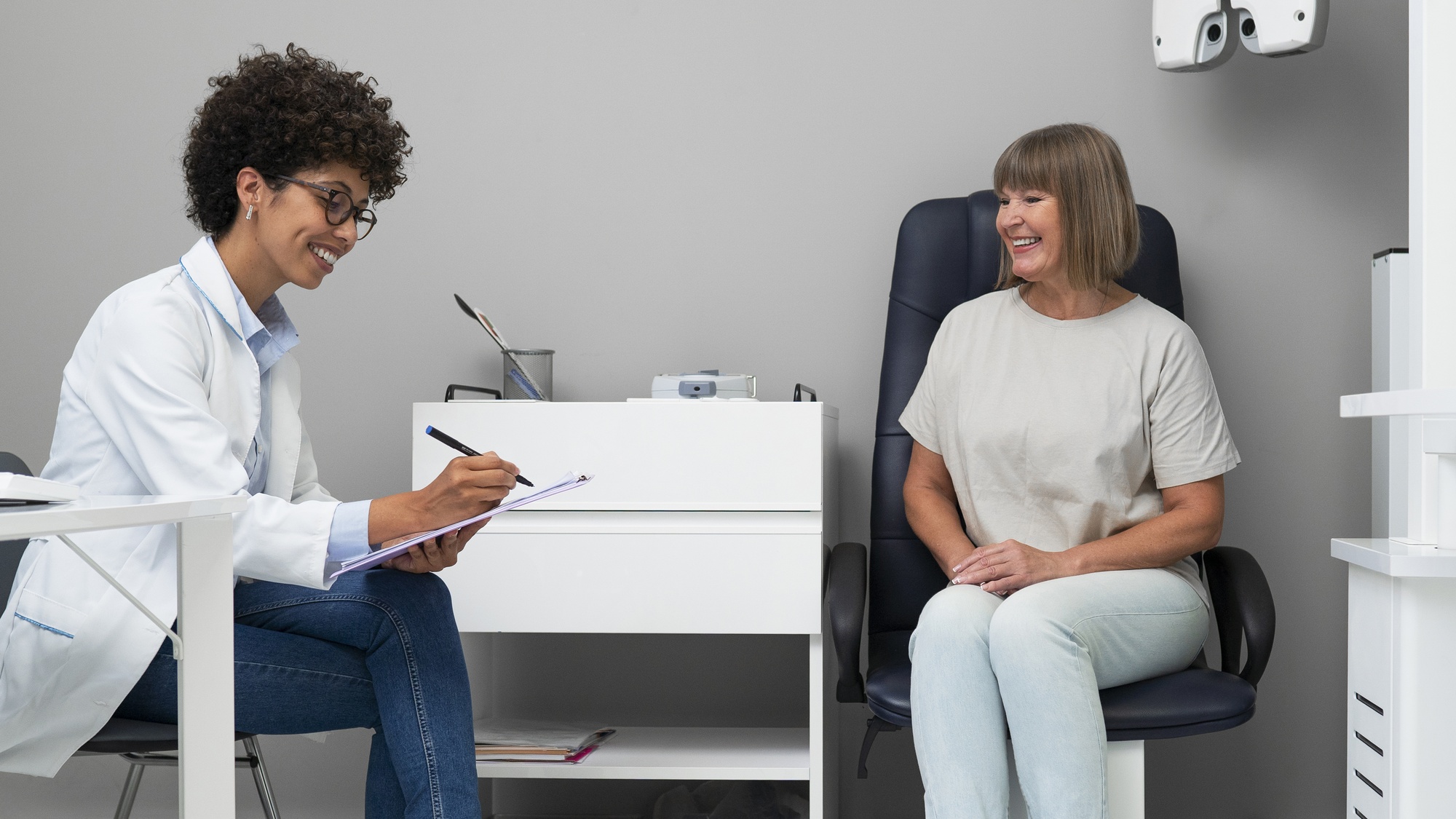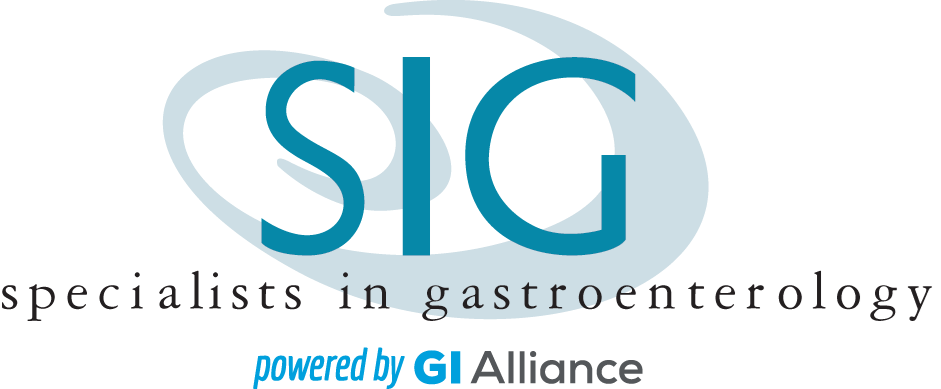Esophagogastroduodenoscopy (EGD) in St. Louis, MO
What is esophagogastroduodenoscopy?
An esophagogastroduodenoscopy (EGD) is an endoscopic exam where a long, slender, flexible tube, or “scope” as it is also known, is inserted into our patient’s mouth and snaked to the beginning of the small intestine, known as the duodenum. The scope includes a light and camera at the end, which helps our providers at a Specialists in Gastroenterology location in your community to more easily examine the lining of the esophagus, stomach, and the beginning of the small intestine.
An esophagogastroduodenoscopy is performed to discover the cause of gastrointestinal problems, like abdominal pain, heartburn and/or acid reflux, complications with swallowing, bleeding, or irregular x-ray results. An EGD may also be performed for St. Louis, MO patients with chronic heartburn to screen for signs of esophageal cancer. Should you need an EGD, please request a consultation with a gastroenterologist at your nearest Specialists in Gastroenterology location.

What are the benefits of an EGD?
Undergoing an EGD procedure is beneficial for several reasons. The exam can allow your GI specialist to examine the esophagus, stomach, and the first part of the small intestine (duodenum). Additional benefits of an esophagogastroduodenoscopy are:
- Generally provides a safe, quick, and efficient process
- Helps in detecting a number of gastrointestinal conditions (such as GI infections, Crohn’s disease, celiac disease, GERD, and more)
- May help determine the causes of GI symptoms, such as nausea, vomiting, heartburn, and pain
- Allows for polyp removal, the biopsy of tissues, and additional small procedures
What happens the day before My esophagogastroduodenoscopy?
You will receive directions from your GI specialist regarding the required preparation for an EGD. Most patients will be allowed to maintain their normal diet in the days leading up to the EGD. You may be instructed not to take anything by mouth after midnight except for necessary medications. It is very important that you follow the instructions provided to you by your Specialists in Gastroenterology GI provider. We will also provide extra guidance for any medications you take. In most cases, you can take your medications as you normally would. However, there are certain situations where this may not be true, especially if you are taking blood thinners (i.e., Coumadin®, Plavix®, warfarin, anti-inflammatories, aspirin) or if you have diabetes. In these cases, our team will give you special instructions.
What can I expect on the day of my EGD?
We will ask you to get to our St. Louis, MO office at least an hour before your exam. You will be asked to change into a medical gown. An IV will be started in your arm so we can begin the sedation process. We’ll have you connected to special equipment that allows your GI specialist to monitor your heart rate, blood pressure, oxygen levels, and much more throughout your exam.
Once in the exam room, we’ll have you relax on your left side on our exam table. IV sedation will be started. Once you are sedated, we’ll gently insert the endoscope into your mouth. The endoscope will be strategically advanced through the esophagus, stomach, and the first portion of the small intestine. We will inject a small amount of air through the scope into the gastrointestinal tract to help our team to have a clear vision. Any fluid left over in the upper GI tract will be removed through the endoscope. Depending on the exam results, various things can be done, such as biopsies, the removal of polyps, and the control of bleeding. Typically, the exam takes approximately 10 – 20 minutes. Following the exam, you will be taken to one of our private recovery rooms so we can monitor you as the sedation starts to wear off.
When can I expect my results?
After the exam, our team will go over the findings of your examination with you. Many patients won’t remember what they were told following their exam because their brains will be foggy from the IV sedation. We encourage you to bring someone with you for a second pair of ears. You will also go home with a typed report. In most cases, you will be informed of any biopsy results in about a week.
What are the risks of an EGD?
Most often, an EGD is a safe and reliable procedure. Overall, complications occur in less than 1% of cases. Typically, these complications are not fatal; although if a complication develops, it could require hospitalization and surgery. Before your exam, a consent form will be reviewed with you by the nursing staff. Should any questions or concerns arise, these can be discussed with your provider ahead of your EGD.
Like any other test, the EGD is not absolute. There is always a slight, known risk that irregularities, such as cancers, might be missed during your EGD. It’s crucial to maintain regular visits with your specialist and inform them of any new or persistent symptoms.
What are the alternatives to an esophagogastroduodenoscopy?
Generally, the alternatives to the esophagogastroduodenoscopy will depend on why you need an EGD in the first place. Usually, an EGD is the most effective way to test for and diagnose any suspicious findings in your upper GI tract. Although, the x-ray called an upper GI/barium swallow can evaluate your upper GI tract as well. This is, however, only a diagnostic analysis. Treating these findings might require an EGD or other surgery.

Take control of your symptoms with an EGD
EGD FAQs
Is an EGD the same procedure as an upper endoscopy?
An EGD may be referred to by different names. At times, it may be called an “upper endoscopy” or a “gastroscopy.” Though these terms may be different, they are generally the same procedure as an EGD.
What are considered "normal" results for an EGD test?
Normal results for an esophagogastroduodenoscopy typically indicate that your GI provider did not detect abnormalities in the upper gastrointestinal structures. However, normal EGD results may be characterized by a normal color and smooth texture of the tissue in the esophageal, stomach, and duodenal areas. Additionally, there should not be any indications of bleeding, inflammation, or growths within these structures. It is imperative to keep in mind that a “normal” result does not always rule out all medical concerns. Some issues might not be visible with this type of test or may be located in another portion of the gastrointestinal tract, outside the reach of the endoscope device utilized to perform the procedure.
For what reasons might an EGD be recommended?
Your Specialists in Gastroenterology provider may prescribe an esophagogastroduodenoscopy exam if you have liver cirrhosis or Crohn’s disease to help keep track of such medical concerns. Additionally, an EGD may be recommended if you are experiencing:
- Tarry or black stool
- Vomiting of blood
- Heartburn
- Pain in the upper abdomen
- Issues with swallowing
- Unintentional loss of weight
- Persistent nausea
What should I bring to my EGD procedure?
When you arrive at the facility for your esophagogastroduodenoscopy procedure, you might need to complete a few patient forms. Therefore, please carry your insurance card and identification with you to your visit. It also may be a good idea to carry a list of medications you might take, the dosages, and the reason for taking them. We encourage you to leave valuables like jewelry at home.
